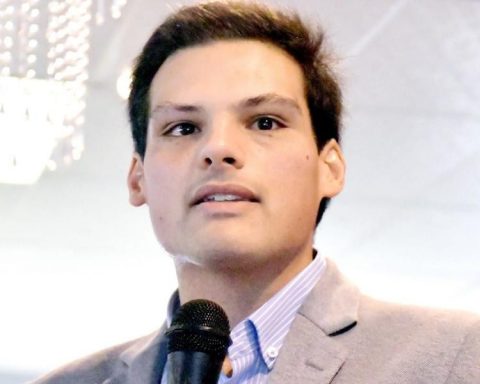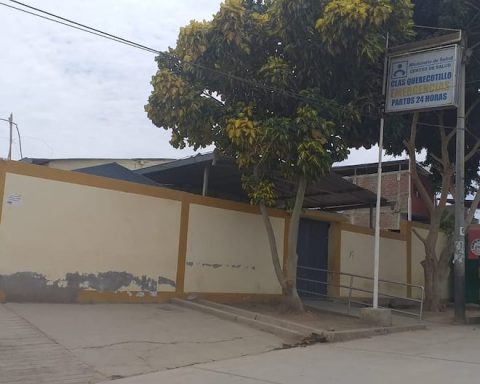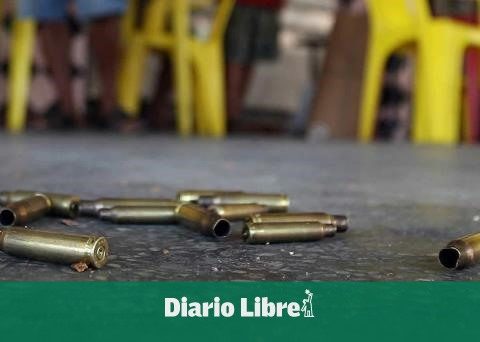In Uruguay, there are sectors of the population that “have chronic debt, that every month have interest repayment expenses on their debts. Just as they spend on health, on rent, also on interest, and the medium and long-term view is that they will not be able to get out of that situation. That happens to thousands of people,” said the economist.
There are not only “900,000” delinquent Uruguayans, “there are a number of people who are in a situation of default, of bankruptcy, but what is happening? What is the problem with all this? People who work in the territory, with families in vulnerable situations”, when they achieve trust “they can tell them about problems of violence, drugs in the neighborhood, childhood problems, even sexual problems”, but it is difficult for them to talk about The chronic indebtedness situations that they suffer from is one of the last issues that can be revealed, when it is a critical problem in many homes, which is part of the whole situation, one problem is not separated from the other. They pay usurious interest and they will never be able to pay off the debt”, and improve their daily lives financially.
A “chronic” problem
The vast majority of financial companies are linked to banks, they lend money with interest of up to “150 percent or more, usury.” And “not all are required to declare delinquency”, which is why we do not even “have real data to know what the indebtedness is, the delinquency levels of people in blank financial institutions” (legal). And to that are added “debts with lenders” usurers, or “with those who are linked to drugs.”
The problem “is chronic, Uruguay is not going to get out of it, it does not have a mechanism like other countries, in the case of the United States with the bankruptcy system. We have a bankruptcy system for companies, but not for people, so the person who owes goes to civil death, does not recover anymore. A person who commits a crime, even a serious one, goes to jail and serves his sentence, here the one who is in debt will never have the possibility of getting out of that situation”.
Uruguayans with “note”
The private company in charge of clearing receives the data, includes them in the delinquency list, “somehow it imposes a category, a good or bad note on all people” And whoever “cannot recover financially is unable to obtain a credit for rental guarantee” or request the service of electricity or drinking water, because the “State does not provide these services” to the debtor. And that person is pushed into informality. “We are talking about consumer credit for ordinary citizens. A month that you cannot pay is difficult to recover because interest rates are usurious at 150% or more, for a country that has inflation of less than 10%”.
The pluses and the minuses
There are three categories in loans: for companies, MiPyme (micro, small or medium-sized companies), and finally for consumption, said the economist. “MiPymes have lower interest rates, although they have requirements such as being up to date with the BPS, presenting a balance and gathering all the information generates delays or the person cannot keep everything in order, thus leading to family consumer loans, those that they give them to you only presenting the identity card. I give an example, if in one place the interest rate is 35% per year and the other is 70%, that is, double, but the latter gives me the credit faster, I take the latter”.
In the country, “consumer credit has grown and they have estimated bad debt levels, and based on that, interest rates rise so as not to lose money with those who do not pay.”
pushed into informality
It is necessary to “regulate the usury rate, so that companies and institutions that work with microcredit” do not make “people fall into the informal system, because we cannot control usury there, we cannot control anything”.
There are other “desperate” people who go to ask their neighbor for money, the lender and then he goes every day to charge them and ends up charging interest that is 200 or 300%, they are crazy figures, it is a crime that occurs permanently ”.
public policies
Viñales insisted that “the problem is bigger than it seems, anyone ends up having chronic debt. The only way to have a solution is that public policies, social policies, can incorporate the treatment of credits with people in a vulnerable situation, many times they are older adults, and by not knowing that there are other credits such as those of the Banco República or the Banco de Previsión Social, they end up hiring a loan from someone who advertised on their doorstep, with interest that is double”.
It should be regulated in such a way that, for example, “with the Mides card, Family Allowances, or certain liabilities, they could have access to more logical credits, because there are even people who cannot even access to buy on credit. Middle and upper middle class people buy with cards in six-month installments, but not the one in the clearing. If you have a sick child and you need to buy medicine or a tunic and you don’t have a card or credit, you go to the blank loan or to the moneylender” and both have usury interest.
Mides acts with vulnerable people, but the debt system is not even interested in thinking about it, and the person with credit will never solve their problem.
one step away from drugs
Sometimes, those who are desperate for debt, “end up in drug situations because there is a lot of money there too.”
There are debts for the purchase of drugs in the outlets, but it also occurs in some cases that adults end up asking the drug dealer for credit or become involved in drug trafficking to pay the debts, that is also happening. Everything is very complex. We thought that the violence, the drugs that were seen in other Latin American countries, were not going to reach us and they did.”
He is…
Public Accountant, graduated from the Faculty of Economic Sciences and Administration of the University of the Republic. He has a Master’s Degree in Public Finance and Financial and Tax Administration, specializing in Tax Administration, from the National University of Distance Education (UNED) of Spain. He has been teaching uninterruptedly since 1992 at the Faculty of Economic Sciences and Administration, at UdelaR. Associate Professor in the Department of Administration, in the careers of Public Accountant and Bachelor of Administration. Since 2012 in the first Edition of it, he has been a Professor of the Postgraduate Specialization and Tax Master’s Degree, at UdelaR, and was a member of the Coordination Council in its creation. He was Academic Assistant to Dean Rodrigo Arim at the Faculty of Economics and Administration (UdelaR). In the professional area, in tax specialty issues, he was Director of CPA Ferrere in the Tax Department, and Partner of Cr. Fossati & Asociados Law Firm. (Data from CINVE, Center for Economic Research).















